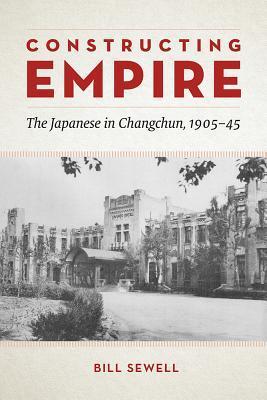
Constructing Empire: The Japanese in Changchun, 1905–45
还没有评分
Manga
格式
精装书
页数
312
语言
英语
已发布
Feb 15, 2019
出版商
UBC Press
ISBN-10
0774836520
ISBN-13
9780774836524
描述
In the heart of colonial Changchun, the intricate endeavors of Japanese civilians unfold, revealing the dynamic interplay between cultural ambition and imperialistic ambition. Through meticulous urban planning, the Japanese transformed this northeastern Chinese city into a vital hub of their empire from 1905 to 1945. Bill Sewell delves into the personal stories and professional lives of those who contributed to this dramatic transformation, shedding light on their motivations and aspirations amidst a backdrop of geopolitical tension.
As the narrative progresses, it explores not just the physical construction of buildings and infrastructure but also the complex social relationships and cultural exchanges that took place. The Japanese in Changchun were not only architects of a new urban landscape but also agents of change, navigating the nuances of local politics and community dynamics. Their experiences illustrate the multifaceted nature of empire, revealing how everyday lives intersected with grand historical movements.
Ultimately, this exploration challenges the conventional narratives of imperialism, emphasizing the agency of individuals within the larger machinery of empire. Sewell’s work invites readers to reconsider the roles of civilians in shaping historical legacies, offering insights into the ways that ordinary people contribute to significant historical processes. The story of Changchun serves as a compelling case study of empire-building, highlighting the lasting impacts of these endeavors on both the city and its inhabitants.
As the narrative progresses, it explores not just the physical construction of buildings and infrastructure but also the complex social relationships and cultural exchanges that took place. The Japanese in Changchun were not only architects of a new urban landscape but also agents of change, navigating the nuances of local politics and community dynamics. Their experiences illustrate the multifaceted nature of empire, revealing how everyday lives intersected with grand historical movements.
Ultimately, this exploration challenges the conventional narratives of imperialism, emphasizing the agency of individuals within the larger machinery of empire. Sewell’s work invites readers to reconsider the roles of civilians in shaping historical legacies, offering insights into the ways that ordinary people contribute to significant historical processes. The story of Changchun serves as a compelling case study of empire-building, highlighting the lasting impacts of these endeavors on both the city and its inhabitants.